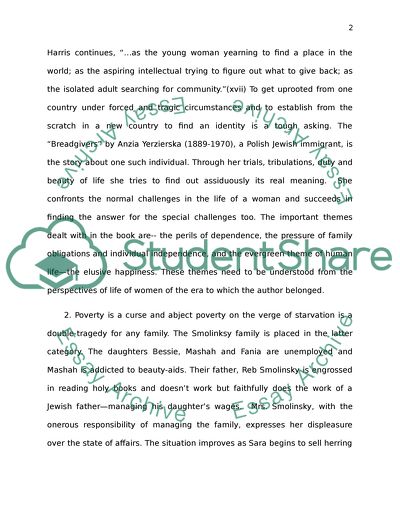Cite this document
(“The issues of the women's status in society in The Breadgivers by Essay”, n.d.)
Retrieved from https://studentshare.org/gender-sexual-studies/1430442-the-issues-of-the-women-s-status-in-society-in-the
Retrieved from https://studentshare.org/gender-sexual-studies/1430442-the-issues-of-the-women-s-status-in-society-in-the
(The Issues of the women'S Status in Society in The Breadgivers by Essay)
https://studentshare.org/gender-sexual-studies/1430442-the-issues-of-the-women-s-status-in-society-in-the.
https://studentshare.org/gender-sexual-studies/1430442-the-issues-of-the-women-s-status-in-society-in-the.
“The Issues of the women'S Status in Society in The Breadgivers by Essay”, n.d. https://studentshare.org/gender-sexual-studies/1430442-the-issues-of-the-women-s-status-in-society-in-the.


